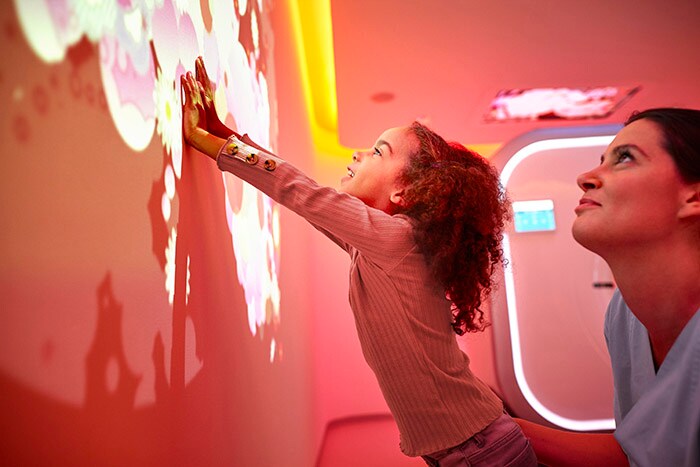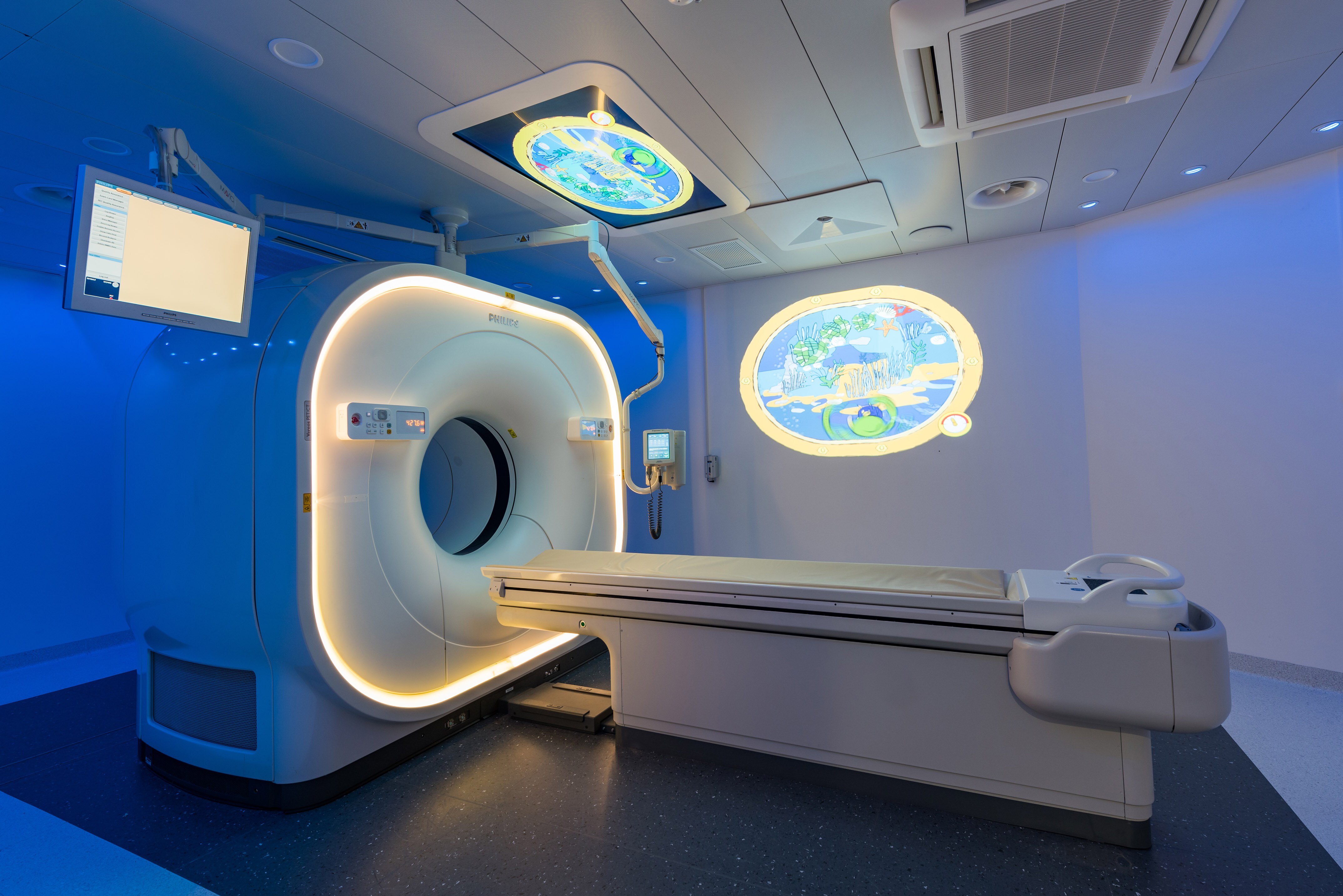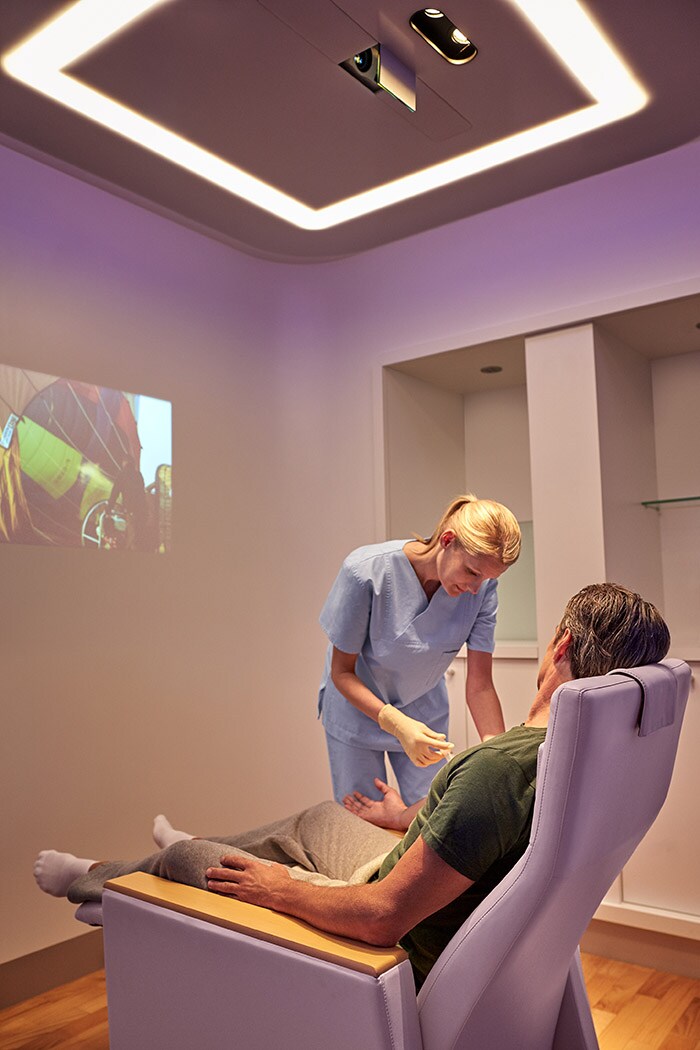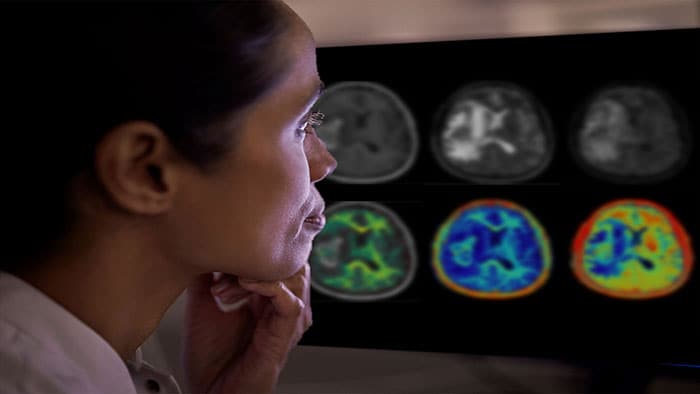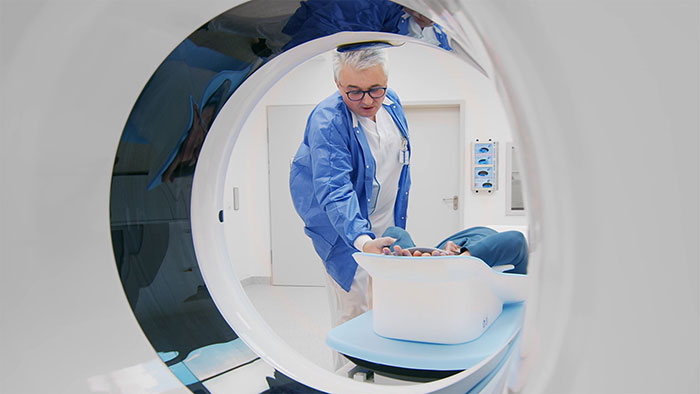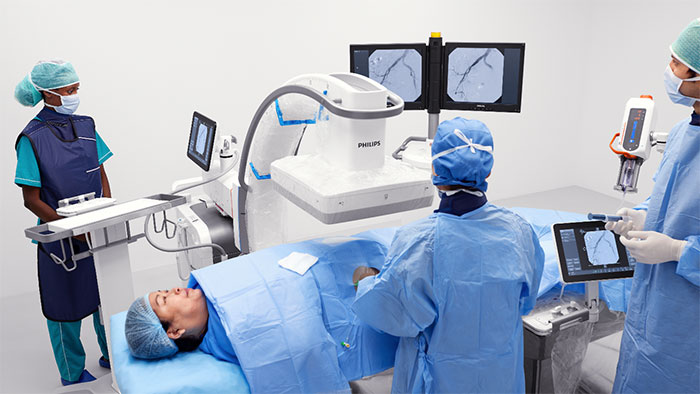Dec 01, 2020
Philips Ambient Experience helps Phoenix Children’s Hospital deliver pediatric-centered cancer care
Amsterdam, the Netherlands and Phoenix, AZ, U.S. – Royal Philips (NYSE: PHG, AEX: PHIA), a global leader in health technology, today announced successful installation of a Philips PET/CT scanner, Vereos, with Ambient Experience at the Phoenix Children’s Hospital (Arizona, U.S.). In addition, Philips has installed two Ambient Experience uptake rooms at the hospital. These are waiting rooms for children and parents while the PET radiotracer, used to show the potential presence of cancer lesions, is absorbed. Following a recent Ambient Experience install at the new Hospital CUF Tejo (Lisbon, Portugal), it brings Philips close to its 2,000th Ambient Experience implementation worldwide. The scanner at Phoenix Children’s Hospital will be used for oncological PET/CT examinations to help define the stage to which a cancer has developed, and monitor treatment. Preparing for and undergoing a scan can be a major source of fear and anxiety due to the prospect of finding cancer or discovering that one has spread, and can adversely affect the quality of medical imaging. This is because anxious patients are less capable of complying with instructions such as lying still. In the case of PET/CT imaging their anxiety can lead to physiological effects such as excessive uptake of the radiotracer in their muscles and brown fat, making it more difficult to differentiate cancer tissue. Philips Ambient Experience solutions are designed to help alleviate the patient’s fear and anxiety, improving the patient experience and helping to achieve first-time-right precision results [1].
Working with Philips, we managed to help the children, and also their parents, achieve a sustained sense of calm during the entire PET/CT imaging procedure while enabling faster image acquisition, faster time-to-results, and reduced need for anesthesia.
Dianna M. E. Bardo MD
Vice-Chair Clinical Development Radiology at Phoenix Children’s Hospital
“Working with Philips, we managed to help the children, and also their parents, achieve a sustained sense of calm during the entire PET/CT imaging procedure while enabling faster image acquisition, faster time-to-results, and reduced need for anesthesia,” said Dianna M. E. Bardo MD, Vice-Chair Clinical Development Radiology at Phoenix Children’s Hospital. “By reducing fear and anxiety in both the children and their parents, the solution also makes the radiology department a much more pleasant and satisfying place for our staff to work.” “Patients play a critical role in their own health care. A patient centric approach that addresses their emotional needs will help patients relax and better comply with staff instructions,” said Werner Satter, General Manager Healthcare Experience Solutions at Philips. “Ambient Experience helps bring together all the elements of the Quadruple Aim, because improving the patient and staff experience has a direct impact on patient outcomes and workflow efficiency, thereby helping to reduce the cost of care.”
Improved experiences, enhanced workflow efficiency
Due to the COVID-19 pandemic, radiology departments are encountering more patients who are feeling fearful and anxious, which can disrupt the diagnostic imaging process [2]. Conventional medical equipment and imaging rooms can be intimidating and therefore increase patient fear. Research has shown that high levels of anxiety were present in around 91% of patients waiting to undergo a radiological exam [3]. Anxious patients are less capable of complying with staff instructions, while stress can have a physiological impact on some patient test results, which may lead to complications or discrepancies in diagnosis and, ultimately, in treatment. Ambient Experience applies human-focused innovation and design thinking to give patients of all ages and staff an engaging and pleasant experience, improving the efficiency of diagnostic and therapeutic procedures and generating confidence in the services and reputation of the healthcare provider. It achieves this through a unique combination of multimedia elements and video themes, backed by comprehensive service and support. Ambient Experience environments can be integrated with MR, PET, CT, DXR, and IGT rooms to promote positive distraction and active relaxation in patients, while also helping staff to work under less pressure and within schedules.
More able to lie still
A pilot study at Phoenix Children’s Hospital found that children in the study are generally more at ease and more able to lie still during their PET/CT scan as a result of the Ambient Experience installation, leading to significantly improved image quality, and at the same time, Philips’ advanced PET/CT scanner, Vereos, enabled Phoenix Children’s Hospital to achieve a 30% reduction in both radiotracer dose and CT X-ray exposure [4]. A similar pediatric-centered care study undertaken by researchers using a Philips MRI scanner, Ingenia, with in-bore Ambient Experience at the Kolding Hospital (Denmark) reported that ‘the use of general anesthesia for MRI in children aged 4-6 was markedly reduced by 80%, image quality was maintained and the setup was cost-effective’[5].
15-year long-term strategic partnership
The installation at Phoenix Children’s Hospital is part of a 15-year long-term strategic partnership with the hospital to accelerate co-creation of solutions specifically designed to meet the unique needs of children.
RSNA
Visit Philips Live! at RSNA 2020 for more information on Philips Ambient Experience and Philips integrated workflow solutions to connect data, technology and people across the imaging enterprise, helping to redefine radiology workflow efficiencies. Together with colleagues, Dianna M. E. Bardo MD is providing an on-demand webinar on the Philips Live! At RSNA platform titled “Is patient-centric imaging better imaging?” In a new interview, Werner Satter, General Manager Philips Healthcare Experience Solutions, gives further insight into what Ambient Experience is and how it can help hospitals deliver on the Quadruple Aim of healthcare - better outcomes, improved patient and staff experiences, and lower cost of care.
Philips’ triple duty of care
The COVID-19 pandemic continues to highlight how interconnected the world’s social, economic and environmental challenges are. Philips remains fully focused on delivering against its triple duty of care: meeting critical customer needs, safeguarding the health and safety of its employees, and ensuring business continuity. As a purpose-driven health technology company, Philips is applying its innovation strength to improve the health and well-being of people. The company is deeply committed to doing business responsibly and sustainably, recently setting out a range of challenging new environmental, social and governance targets. [1] Vogel WV, Valdés Olmos RA, Tijs TJ, Gillies MF, van Elswijk G, Vogt J. Intervention to lower anxiety of 18F-FDG PET/CT patients by use of audiovisual imagery during the uptake phase before imaging. J. Nucl. Med. Technol. 2012;40:92-98. [2] Prof de Ruyter, Timmer. The cost of fear and anxiety in radiology 4522 991 64741 * Nov 2020 [3] Lo Re G, De Luca R, Muscarneri F, Dorangricchia P, Picone D, Vernuccio F, Salerno S, La Tona G, Pinto A, Midiri M, Russo A, Lagalla R, Cicero G. Relationship between anxiety level and radiological investigation. Comparison among different diagnostic imaging exams in a prospective single-center study. Radiol Med. 2016 Oct;121(10):763-8. doi: 10.1007/s11547-016-0664-z. Epub 2016 Jun 22. PMID: 27334010. [4] Bardo D, Biyyan D, Boff M, Phoenix Children’s Hospital. PET/CT & The Ambient Experience in Pediatric Radiology. Applied Radiology June 2021 [5] Runge SB, Christensen NL, Jensen K, Jensen IE. Children centered care: Minimizing the need for anesthesia with a multi-faceted concept for MRI in children aged 4-6. Eur J Radiol. 2018 Oct;107:183-187. doi: 10.1016/j.ejrad.2018.08.026. Epub 2018 Sep 1. PMID: 30292264.
About Royal Philips
Royal Philips (NYSE: PHG, AEX: PHIA) is a leading health technology company focused on improving people's health and well-being, and enabling better outcomes across the health continuum – from healthy living and prevention, to diagnosis, treatment and home care. Philips leverages advanced technology and deep clinical and consumer insights to deliver integrated solutions. Headquartered in the Netherlands, the company is a leader in diagnostic imaging, image-guided therapy, patient monitoring and health informatics, as well as in consumer health and home care. Philips generated 2019 sales of EUR 19.5 billion and employs approximately 81,000 employees with sales and services in more than 100 countries. News about Philips can be found at www.philips.com/newscenter.


